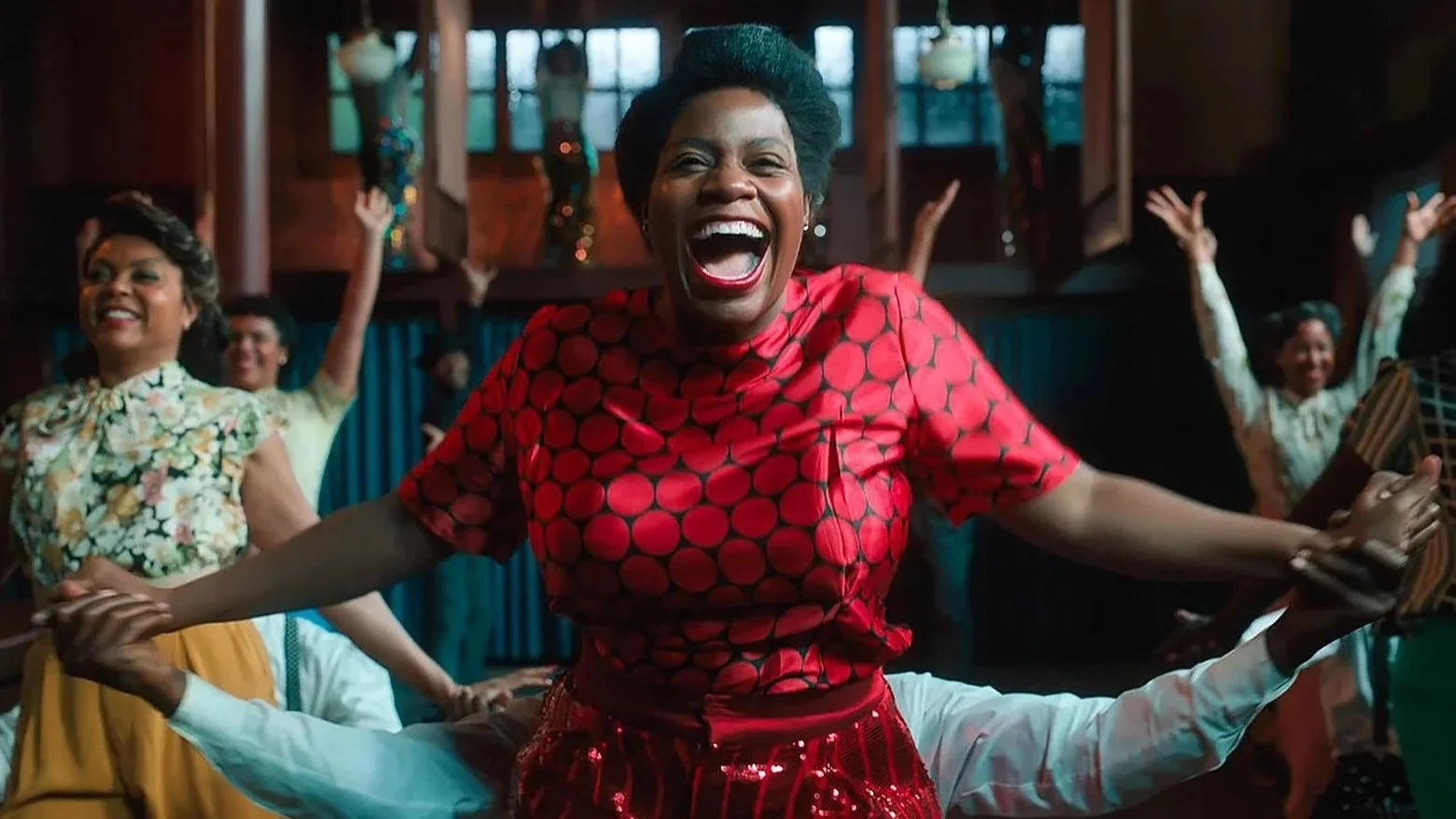The Color Purple
The all-singing, all-dancing edition of Alice Walker’s Pulitzer Prize-winning novel is a sumptuous, overblown hymn to human tragedy.
Plenty to sing about: Fantasia Barrino
Courtesy of Warner Bros. Pictures
The Color Purple is the latest in a string of big-screen adaptations of Broadway shows lifted from hit movies. In spite of suffering the excision of thirteen numbers from the stage production, the new film is nonetheless a full-powered musical, a fact that plays both to its advantage and detriment. It takes a certain tact to mount an all-singing extravaganza about incest, sexual abuse, adultery and alcoholism, and the work conveys neither the realism of Cabaret nor the Gothic wit of Sweeney Todd, to namecheck two of the canon’s darker-hearted singalongs. At first, it’s hard to marry the full-throated rapture of the gospel numbers with the tragedy at the heart of Celie’s miserable story.
Habitually raped by her father, the 14-year-old Celie sees her new-born babies taken from her by her Pa and “given to God,” depriving her of the only unconditional love she could hope to experience beyond that of her little sister, Nettie. Then, in a brutal pact with the Devil, she is married off to ‘Mister’ (Colman Domingo), a cruel drunk who treats her as a maid, cook, sex slave and mother to his own three children. On-screen, the story starts in 1909, somewhere off the coast of Georgia, and it’s like eavesdropping on Heaven on Earth. But the initial innocence that Celie and Nettie enjoy, accompanied by the tumescent chords of Kris Bowers’ score, is short-lived.
In Alice Walker’s original 1982 novel, Celie’s story unfolds in a series of letters written to God, the poignancy of which is accentuated by her broken English. “A girl at church say you git big if you bleed every month,” she writes in an early missive. “I don’t bleed no more.” Endowed with a $100 million budget, the film looks sumptuous to say the least, from its picturesque locations daubed with Spanish moss to the sun-filtered interiors. The costumes, cinematography and choreography are all top-notch, too, as is the level of the acting. Danielle Brooks has been nominated for an Oscar for her feisty turn as Sofia, but she’s in excellent company.
More problematic is the enunciation, so much so that for ears unaccustomed to the period and locality might be at a loss to know what’s going on. Part of the difficulty is that the voices are competing with Bowers’ score and the crisp, simple heartbreak of Walker’s prose is swept away in the overblown production values. It’s not until the film nudges its way into its third hour, does its emotional power kick in – but it’s a long wait. There is much to admire and there is one standout number – Fantasia Barrino’s epic delivery of ‘I’m Here’ as the older Celie – which is more than can be said for the recent musicals Wonka and Mean Girls. It is Barrino’s Dreamgirls moment and she knocks it out of the park. No wonder, then, that she has been nominated for a Bafta.
JAMES CAMERON-WILSON
Cast: Fantasia Barrino, Taraji P. Henson, Danielle Brooks, Colman Domingo, Corey Hawkins, Gabriella Wilson ‘H.E.R.’, Halle Bailey, Louis Gossett Jr, Phylicia Pearl Mpasi, Ciara, Jon Batiste, Aunjanue Ellis-Taylor, David Alan Grier, Deon Cole, Tamela Mann, Elizabeth Marvel, Whoopi Goldberg.
Dir Blitz Bazawule, Pro Oprah Winfrey, Steven Spielberg, Scott Sanders and Quincy Jones, Screenplay Marcus Gardley, Ph Dan Laustsen, Pro Des Paul D. Austerberry, Ed Jon Poll, Music Kris Bowers, Costumes Francine Jamison-Tanchuck, Sound Ken McGill, Choreography Fatima Robinson, Dialect coach Tangela Large.
OW Films/Amblin Entertainment/SGS Pictures/Quincy Jones Productions/Domain Entertainment-Warner Bros.
140 mins. USA. 2023. US Rel: 25 December 2023. UK Rel: 26 January 2024. Cert. 12A.


